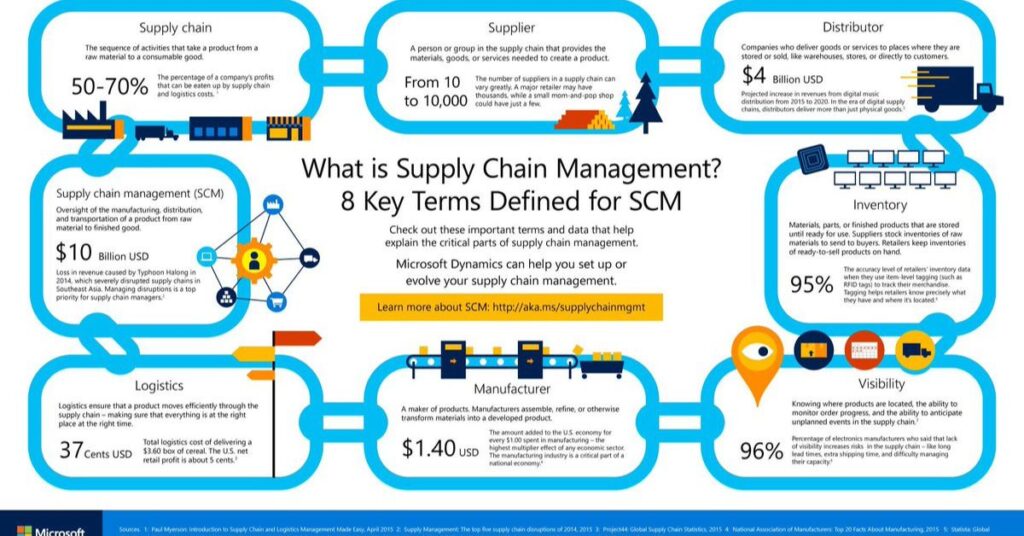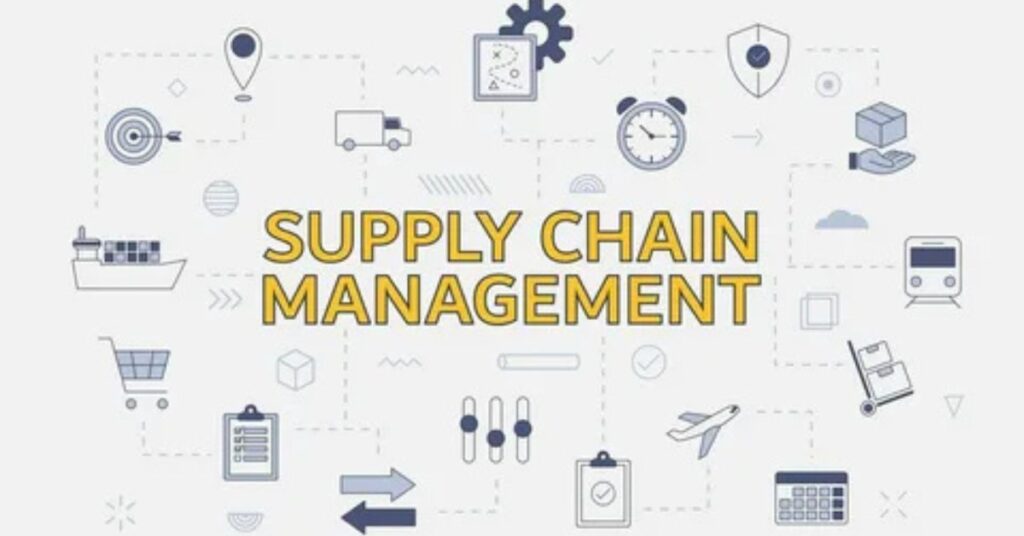Consider the world where you receive your favourite product in front of your door at lower costs and with less amount of waste. Artificial Intelligence (AI) is doing just that in supply chain management. Here, in this article, we will demystify how AI aids in the use of supply chains in layman’s terms (even children as young as 12 years old will understand it).
We will also go through real-life scenarios, give anecdotes, and take you through this step-by-step so that you get why this technology is revolutionising the working of businesses work.
- Artificial Intelligence in Supply Chain Management: What’s the Big Deal?
- Explain How AI Helps in Supply Chain Management: A Simple Story
- Benefits of AI in Supply Chain Management
- AI in Supply Chain Examples from Real Companies
- Artificial Intelligence in Supply Chain Management Course: Learn the Skills
- AI in Supply Chain Management Research Paper: What Experts Say
- AI in Supply Chain and Logistics: How It Keeps Things Moving
- AI in Supply Chain Management Certification: Boost Your Career
- Step-by-Step: How to Get Started with AI in Your Supply Chain
- Final Thoughts: Why You Should Trust AI in Supply Chains
- FAQ's
Artificial Intelligence in Supply Chain Management: What’s the Big Deal?
Artificial Intelligence is a super brain that is like a robot. It assists in the process of making decisions in businesses based on data learning. This implies that in terms of supply chain management, it can:
- Forecast the desires of people for the products
- Prevent outbreaks of problems before they occur
- Propose superior delivery patterns
- Automatic inventory management
Fun Fact: You go to Google Maps when you want to avoid the traffic, and AI does the same to help companies avoid shipping delays!
Explain How AI Helps in Supply Chain Management: A Simple Story
Suppose that a given company is selling sneakers. They may end up having a lot of size 10s and under ordering size 8s without AI. AI would consider the historical data, tendencies, weather and other parameters to forecast a number of each size to order.
Anecdote: In Chicago, one of the stores tracked weather information with the help of AI. Whenever AI observed a cold front, it stocked up on boots rather than sneakers, and they exhausted them within a period of only two days!
Such time-saving, money-saving and waste-saving is AI working.
Benefits of AI in Supply Chain Management
Here is what makes AI a game-changer:
1. Better Forecasting
AI looks at mountains of data and gives accurate predictions. It tells companies what products to buy, when to buy, and how much to buy.
2. Faster Deliveries
AI tools choose the quickest and cheapest shipping routes. This saves fuel and gets your order delivered on time.
3. Smarter Warehouses
Robots powered by AI can sort, pack, and move items faster than humans, and without mistakes.
4. Real-Time Tracking
Customers can track their packages in real-time, thanks to AI analysing GPS data.
5. Eco-Friendly Operations
With better predictions and fewer wasted resources, AI helps reduce environmental impact.
AI in Supply Chain Examples from Real Companies
So, what are some uplifting examples:
- Walmart employs AI to predict the desires of people during the holiday. This assists in diminishing empty shelves.
- DHL employs AI in order to map optimised and quicker routes of delivery and minimise the amount of fuel consumed.
- Unilever uses AI to control its factories and detect issues with equipment before they fail.
These examples refer to the idea that AI is no longer a science fiction but it is a reality.
Artificial Intelligence in Supply Chain Management Course: Learn the Skills
Supply chain course on AI. In case you would like to know how this technology works, you can take a course in AI in the supply chain. Such courses will train you:
- The way that AI gathers and interprets information
- The process of building the supply chain models using AI
- Real-world logistics implements
Most of these classes do not require you to be intimidated by computer science, even when you have no exposure to computer code.
AI in Supply Chain Management Research Paper: What Experts Say
A research paper prepared by McKinsey states that AI has the potential to cut down the incidence of errors in the supply chain by 50% and enhance efficiency by 30%.
In the opinion of researchers, AI might:
- Save billions in supply costs all over the world
- Restore the resilience of supply chains to crises (such as COVID-19)
- Assist in minimising carbon footprints
These results indicate how strong AI in supply chains can be.
AI in Supply Chain and Logistics: How It Keeps Things Moving
Logistics refers to the transportation of goods. AI in logistics achieves this by:
- The fastest delivery paths
- Scheduling of trucks and planes in an efficient manner
- Forecasting traffic flow
- Less fuel wastage and packaging wastage
Let us take an example of FedEx that employs AI to determine how to pack its trucks so as to conserve space and time.
AI in Supply Chain Management Certification: Boost Your Career
Do you want to work in this fast-growing sphere? Think about becoming a certified professional. It demonstrates to employers how to:
- Employed AI applications such as predictive analytics and machine learning
- Refine processes of delivery
- Reduce expenses with an insightful decision-making process
As more companies adopt AI, these skills are becoming very desirable.
Step-by-Step: How to Get Started with AI in Your Supply Chain

Here is a simple guide if you run a business and want to use AI:
Step 1: Understand Your Current Supply Chain
Figure out where you lose money: inventory, deliveries, or customer service.
Step 2: Collect the Right Data
AI needs data to learn. Start by collecting sales records, delivery times, and inventory data.
Step 3: Choose an AI Tool
Look into tools like ClearMetal or Llamasoft. They are beginner-friendly AI solutions for supply chains.
Step 4: Start Small
Test AI on one problem first, like predicting product demand.
Step 5: Expand
Once it works, apply AI to more areas: shipping, warehouse, customer service, etc.
Final Thoughts: Why You Should Trust AI in Supply Chains
Companies will be able to provide greater service to the customer as well as save some money since waste can be reduced with the help of AI, and customers are happy. It does not mean substituting people, it is all about enabling them to work smarter.Therefore, the next time you receive your package in less time than the promised schedule, you should know that AI may be the silent assistant in the background.
FAQ’s
How does AI help in supply chain management?
The ability to complete tasks that are complex and take a long time makes AI useful in supply chain management efforts. It enjoys intelligent applications such as machine learning and predictive analytics to monitor the inventory, and delivery program and sometimes even predict the problem before it occurs. As a case in point, we can mention how the use of AI can lead to predicting the demand for products to ensure the company neither oversells nor has no inventory. This results in improved planning, reduce wastage and customers being happy.
How can artificial intelligence improve the performance of supply chain?
Artificial intelligence enhances the performance of the supply chain, making it faster, more accurate and flexible. The process takes a lot of data, but I-systems are capable of managing large quantities of data so that companies will be able to react to changes in demand or delays in shipping more quickly. It also eliminates the chance of human error and increases efficiency by automating the processes that are recurring, such as taking orders or predicting demand.
In the practical case scenario, AI allows companies like Amazon and Walmart to stay ahead and maintain their stock on shelves while maintaining the delivery time. This is the kind of contribution AI makes when it comes to the overall performance of the current, rapidly evolving markets.
How AI can transform the supply chain?
A superior supply chain can be achieved through the use of IA, as it will be more resilient, responsive, and based on data. It alters the decision-making process, from gut feel to real-time AI-assisted decision-making. Think of a factory with sensors and AI used to anticipate equipment failure- this saves money as well as time.
Companies will also have the ability to select the best, as well as the fastest and most affordable shipping routes using the AI in charge of logistics. The possible implication of such a tech-driven approach is the ability to respond dynamically to the current disruption, such as a natural disaster or a pandemic.


Pingback: 10 Best AI Extensions for Chrome Browser in 2025 (Must-Have Tools) - Future Weave
Pingback: Business-to-Business (B2B) Proven Strategies to Grow and Win Clients (2025). - Future Weave
Pingback: Animal Health Tracking AI Devices: The Future of Smart Farming in 2025 - Future Weave
Pingback: Top 5 Milk Freshness Detection Technologies for Safer Dairy - Future Weave
Pingback: Blockchain for Dairy Traceability: Benefits, Challenges, and Future Trends (2025) - Future Weave
Discover your perfect shades with color analysis quiz and find your unique color palette.
Moreover, evaluate the types of tools and technologies utilized by the service for the analysis.